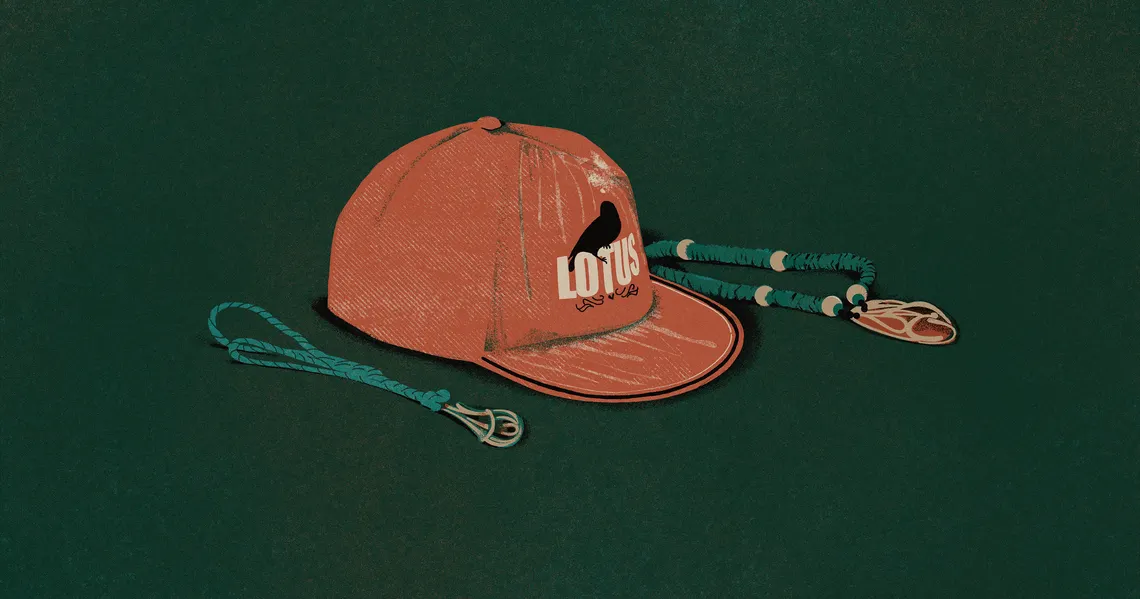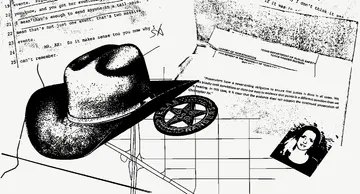Donald Prutting called the prison for weeks, trying to collect his brother’s ashes. Jacqueline Ciccone was handed a clear plastic bag of possessions at the hospital just before her son died, then spent months trying to piece together what had happened to him in jail. After Tammy Reed’s son died, the prison gave her a box that contained what appeared to be someone else’s clothes and shoes.
When someone dies behind bars, the officials who run prisons and jails don't always return all of their belongings to their loved ones. Books, drawings, letters, and other memorabilia, for many families, are precious reminders of the person they've lost. In some places, corrections officials hold on to property until they finish investigating the death. Other places keep the property until a court officially names someone to manage it or the family submits the right paperwork, a process that can drag on for weeks, or even months. And if some beloved memento goes missing, families have little recourse.
The Marshall Project spoke with five families about the belongings they did — or didn’t — receive after their loved ones died in custody, and asked what those keepsakes meant to them as they mourned.







Donald Prutting’s brother Kenneth died in February of brain swelling caused by leukemia while in the custody of the Federal Bureau of Prisons in California. It took several weeks for Donald to get his brother’s ashes.
Kenneth had been a life-long New York Knicks fan, but felt like his team was perpetually disappointing; the Knicks hadn’t made it to the conference finals in decades. The last time the brothers talked, Kenneth said that this was going to be their year.
“I just couldn't put his ashes to rest until the [playoffs were] over,” Donald said. He placed Kenneth’s ashes under his television while the games played. “I know that sounds crazy.”
The Knicks made the conference finals for the first time in 25 years, but lost in six games.
When their post-season run finally ended, Donald told his brother: “They did as best they could, now you can lay in peace.”
Tammy Reed’s son, Brandon Pace, died in 2023 at Tipton Correctional Facility in Missouri. His death was ruled an accident, but Reed has filed a wrongful death lawsuit against the state corrections department, alleging her son died after being pepper-sprayed and restrained by prison officers.
Reed received some belongings from the prison. Most of them didn’t seem like her son’s. The clothes and shoes were not even his size.
In the box that the prison returned to her, she found a receipt for $155 worth of food that he purchased from the facility’s commissary days before his death: ramen noodles, chili powder, chips, crackers, sodas and lemonade packets. None of the grocery items were in the box.
For her, only that single receipt carried any trace of him.
“It was what I had left,” she said.
Jacqueline Ciccone’s son Justin died in 2020. Ciccone’s family sued the Rowan County Detention Center in Kentucky, where he had been held, and alleged that the 34-year-old’s death came after officers there tased and beat him. The lawsuit was eventually settled.
When Jacqueline arrived at the hospital where Justin was on life support, she said that officers gave her a clear plastic bag with his possessions.
The bag, she said, included a muddy hat from his favorite band and a necklace that he had made from stones and his grandmother’s wedding ring.
Jacqueline keeps Justin’s hat, still covered in mud, in a corner of her living room.
“It’s hard to imagine packing up his things into a box or a drawer, out of sight,” she said.
Michael Haines and his child Kate had been estranged for 16 years when he died after choking on food in North Central Regional Jail in West Virginia.
Michael had been a devout Christian, so Kate expected to see a Bible among the things the jail returned seven weeks after his death. But the jail staff only handed over a bag of clothes and a few papers.
“The man that I knew…didn't go anywhere without it,” Kate said. “And he didn't carry one of those pocket Bibles, either…He carried a full King James Version Bible everywhere he went.”
Looking at the bag from the jail, Kate’s mother had one immediate question:
“Did you find his Bible?”
Lynda Kettel’s son, Daniel Jeffers, took his own life in 2024 while he was incarcerated at Washington, D.C.’s Central Detention Facility.
Jeffers was a well-traveled musician who spoke six languages and had performed on five continents. He had never before been in jail or any kind of legal trouble, and Kettel wanted him to stay focused on his future.
She sent him books: “Portuguese for Beginners,” Aztec history and religion, and others tied to places he dreamed of visiting, like China. She hoped they would remind him of the world beyond the jail.
Kettel never got the books back after his death and doesn’t know what happened to them. She believes the jail kept them.
“They weren’t theirs to keep…They’re Daniel’s. They’re mine,” she said.
The Missouri Department of Corrections declined to comment on the Reed case, but said that, in general, families have 60 days to claim property after a death.
The West Virginia Division of Corrections and Rehabilitation declined to comment on Haines’ property.
An email to the Federal Bureau of Prisons received an automated reply, saying it was not available to respond because of the government shutdown. The Washington D.C. Department of Corrections and the Kentucky Department of Corrections did not respond to requests for comment.
